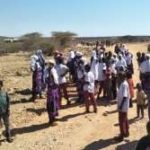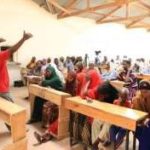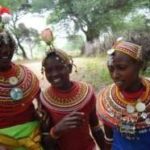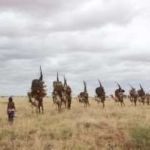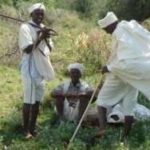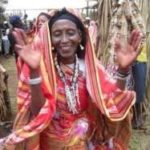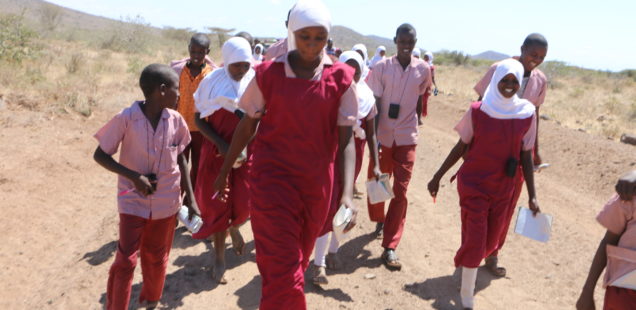
Children and youth of pastoralist peoples in Isiolo county (Kenya) learn from their elders how to become custodians of cultural and natural heritage
Ecologically harsh and sparsely populated, the northern regions of Kenya are home to different ethnic groups with livelihoods centered on mobile pastoralism and foraging. Vibrant ecological knowledge and skills have enabled people like the Gabbra, Borana, Saakuyye, Somali, Turkana, Samburu, Rendille, Daasanach, Waayu, Burji, El-Molo and Konso to live in resource-poor areas and develop rich cultural heritages. Mobility over wide areas in search of water and pasture is a key tenet of their livelihoods strategies and relationships with their territories. Unfortunately, mobile ethnic communities face increasing threats of losing their cultural and natural heritage, including their rangelands, indigenous knowledge, customs, value systems, and collective identity. An inter-generational gap is developing as the traditional processes of knowledge transmission are breaking down and many among the youth migrate to urban areas. The formal education system is in great part responsible for this, as it uproots children from their homes and their larger territories, depriving them of the opportunity to learn and practice their own culture during the most important time of their learning. Boarding schools are mushrooming throughout the region and the youth is rapidly losing access to the wisdom and capacities of the elders. With that, they also lose much of their own identity and pride.
Lattu Lifespring is a community based organization working with primary schools children and parents among pastoralists, hunter-gather and minority communities in the county of Isiolo, in Northern Kenya. The organization provides opportunities for children and youth to appreciate their languages, indigenous knowledge, and cultural practices. It also promotes the skills necessary to understand and tackle emerging environmental and social issues of concern. For this specific initiative, Lattu Lifespring will encourage and support children and youth to respect and celebrate their collective cultural and natural heritage and foster inter-community harmony and cooperation among four communities in Isiolo County.
Children and youth from four communities — Kula Mawe and Yaaq Barsadi in South Isiolo, and Iltungai and Gotu in North Isiolo—will be accompanied to acquire the traditional knowledge and skills necessary to take responsibility for the care and protection of the bio-cultural wealth of their motherland. The children and youth will learn directly from their elders and discuss local history, natural resources, cultural practices, traditional institutions and the responsibilities and contributions that communities must take on to secure their collective and sustainable wellbeing. In the occasion, children, youth, and adults will also receive information and tools to respond to the Covid-19 pandemic.
The work will be carried out by a Lattu Lifespring team composed of three staff members (including camera crew), two primary school teachers, two elders and two youth (men and women in all categories). These individuals are all passionate about the local cultures and have strong communication skills. The team will visit the four communities and set-up weekend meetings to promote inter-generational dialogues among local children and youth (old 10-16, about 120 children per community), their parents and key community elders. The dialogues will involve presentations and debates, sharing of stories, poems, songs and dance, role playing and watching of relevant videos. They will focus on the status of the local cultural and natural heritage, on community wellbeing and on what needs to take place for the collective heritage to be cherished and conserved. The dialogues will take place in the local primary schools, and it is expected that groups of ‘culture champions’ will self-select as part of that.
Because of the dialogues and discussions, both young people and elders will hopefully feel more confident and better respected, and more determined to keep alive the use of their mother tongues and traditional dress codes, but also to promote and support the registration of community land, now that this is finally possible in Kenya. After the four community visits and exchanges, a final dialogue will be facilitated among representatives of all concerned communities, covering inter-ethnic issues and promoting mutual learning, emulation, and friendship. This final meeting will take place in Gotu and engage elders and youth from ethnic groups including people who identify as Borana (from Kula Mawe), mixed Borana/Sakuyyye (from Yaaq Barsadi), Turkana (from Iltungai) and Garri (from Gotu). Overall, Lattu Lifespring will strive to make sure that youth and elders actively participate in community land registration activities and that inter-cultural interactions, friendship and social movements will emerge among the youth of different ethnic communities.

